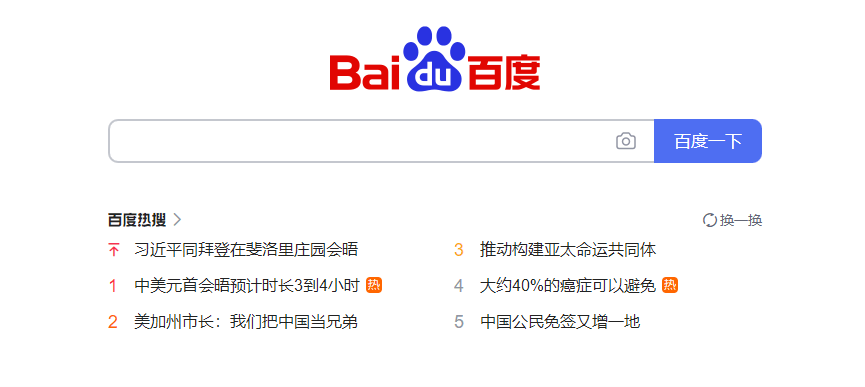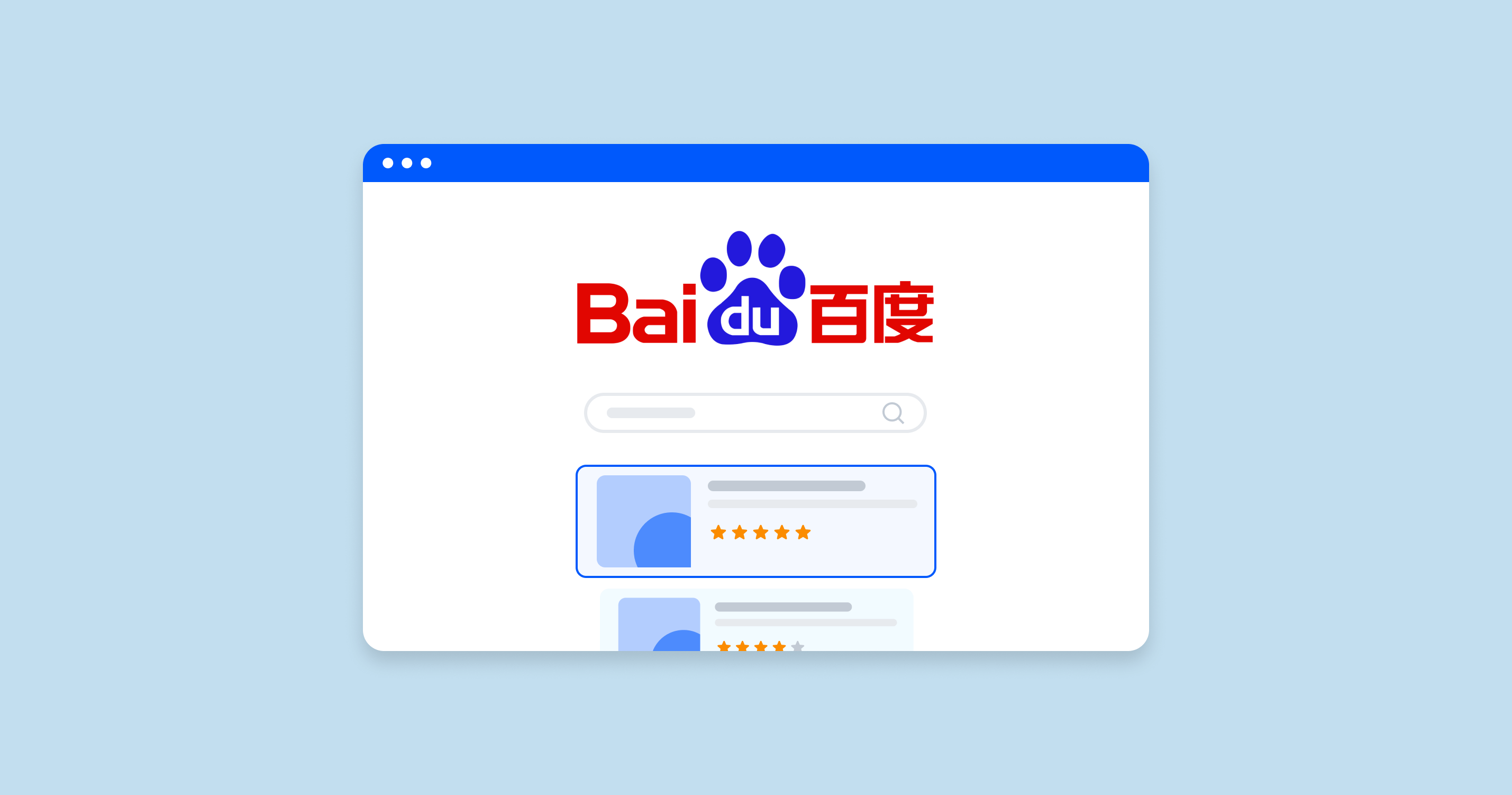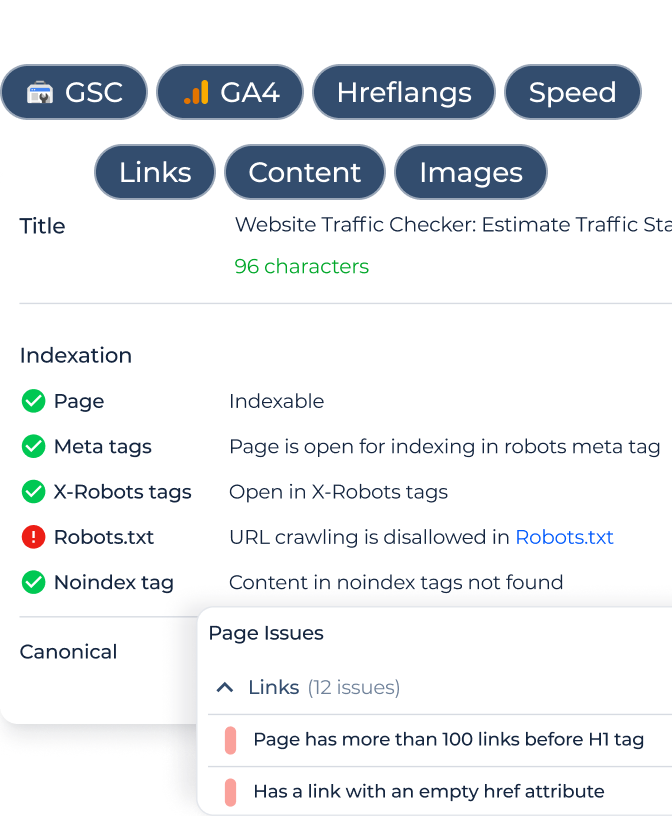What is Baidu?
Baidu, often referred to as the “Google of China,” is the leading search engine in the People’s Republic of China. Founded in 2000 by Robin Li and Eric Xu, the company has expanded its services well beyond its foundational search capabilities. While Baidu’s primary function is to provide online search services, it’s a multifaceted tech giant with its fingers in various other pies of internet related services, from artificial intelligence (AI) to autonomous driving and much more.

Origin and Growth
From its inception, Baidu has prioritized providing the most relevant search results for its users. Unlike its Western counterpart, Google, Baidu is tailored specifically for Chinese users, considering linguistic nuances, local content preferences, and the ever-evolving digital landscape in China. This focus on local adaptation, combined with China’s vast internet user base, has solidified Baidu’s dominant position in the Chinese digital marketplace.
Over the years, the company’s rapid growth has been underpinned by constant innovation. Baidu has heavily invested in research and development, leading to advancements in AI, machine learning, and voice recognition, among other technological domains. These innovations have allowed Baidu to offer an array of services beyond just search, such as Baidu Maps, Baidu Cloud, and the popular Baidu Baike, which is a user-edited encyclopedia similar to Wikipedia.
Global Influence and Ambitions
While Baidu’s primary user base remains in China, its influence and ambitions are global. The company actively collaborates with international tech firms and universities on research projects and seeks to expand its presence in markets outside of China. For instance, Baidu’s autonomous driving platform, Apollo, has made headlines worldwide, showcasing the company’s intent to be a major player in the global tech arena.
Challenges and Censorship
Despite its massive success and growth, Baidu has not been without its challenges. Like other Chinese internet platforms, Baidu has to operate under strict government regulations. It has often been criticized for censoring search results, which has raised concerns about information access and freedom in China. However, Baidu maintains that it adheres to the legal and regulatory framework set by the Chinese government.
Baidu is not just a search engine; it’s a testament to China’s technological advancement and the nation’s ability to foster home-grown tech giants that can rival their Western counterparts. While it operates in a unique ecosystem molded by cultural, linguistic, and regulatory factors, Baidu’s journey offers valuable insights into the evolving dynamics of the global digital landscape.
Baidu, like other search engines, uses a proprietary algorithm to rank web pages in its search results. While the exact details of the Baidu search algorithm are kept secret, we can understand its functioning based on known factors, trends, and observations.
Baidu Search Engine Algorithm: An Overview
| Relevance | Just as with other search engines, relevance is a primary factor. Baidu’s algorithm assesses how closely a page’s content matches a user’s query. |
| Quality of Content | Baidu places a strong emphasis on high-quality, unique content. Duplicate or plagiarized content is likely to be penalized. |
| Backlinks | The number and quality of backlinks to a site play a significant role in its ranking on Baidu. However, the search engine is known to be particularly stringent about spammy or low-quality links. |
| Local Hosting and Domain | Sites hosted in China or using a .cn domain often receive a ranking boost. This local preference is one of the clear distinctions between Baidu and global search engines like Google. |
| Page Loading Speed | Baidu values user experience. Pages that load quickly, especially on mobile devices, are more likely to rank higher. |
| Mobile Optimization | With the vast majority of Chinese internet users accessing the web via mobile devices, Baidu gives preference to sites that are mobile-friendly. |
| Metadata and On-page SEO | Proper use of meta tags, keyword optimization, and structured data can influence rankings on Baidu. |
| User Behavior | How users interact with a site (click-through rates, bounce rates, time spent on site) can impact rankings. Positive user behavior signals can boost a page’s position in the search results. |
| Baidu Webmaster Tools | Using Baidu’s suite of webmaster tools and adhering to its guidelines can positively influence rankings. Baidu offers its own set of tools, similar to Google’s, for site owners to monitor and improve their site’s performance. |
| Regulatory Compliance | Given China’s strict internet regulations, sites that do not adhere to local laws or contain banned content are likely to be de-indexed or penalized. |
| Integration with Baidu Services | Websites that utilize Baidu services, like Baidu Baike (an encyclopedia) or Baidu Tieba (a forum platform), might get some preference in the search results. |
It’s essential to note that Baidu’s algorithm is dynamic, undergoing regular updates and changes. This means that while the factors listed above are significant, the weight each factor carries and the specifics of how they are assessed can vary over time. If one aims to optimize for Baidu, a consistent and up-to-date understanding of the platform, along with regular adjustments to SEO strategies, is crucial.
Why is Baidu the Top Search Engine in China?
Baidu’s rise to prominence as the leading search engine in China is not just a story of technological innovation, but also one of strategic foresight, local adaptation, and market dynamics. Here’s why Baidu reigns supreme in the Chinese digital realm:
- Early Mover Advantage:
- Origins: Launched in 2000, Baidu quickly positioned itself as a reliable search platform tailored specifically for Chinese users.
- Rapid Development: The company’s early focus on providing a fast, efficient, and relevant search experience allowed it to capture a significant user base, creating a strong foundation for future growth.
- Cultural & Linguistic Fit:
- Understanding Chinese Linguistics: Baidu’s search algorithms were developed with a deep understanding of the Chinese language and its intricacies, which gave it a significant edge over international competitors.
- Localized Content: Baidu prioritized local websites, blogs, forums, and other platforms, ensuring users received content that was both relevant and resonant.
- Continuous Innovation:
- Investment in R&D: Baidu heavily invested in research and development, leading to advancements in AI, machine learning, and more, which further improved its search capabilities.
- Diversification: The company branched out into various services, from maps to cloud storage, creating an ecosystem that kept users engaged and reliant on Baidu’s suite of digital tools.
- Regulatory Environment:
- Government Regulations: China’s regulatory environment played a pivotal role in Baidu’s dominance. With many Western competitors facing restrictions or being blocked entirely, Baidu had a clearer path to becoming the top choice for Chinese netizens.
- Alignment with Policy: Baidu’s willingness to adhere to Chinese government guidelines, including content censorship, ensured its uninterrupted operation within the country.
- Strategic Partnerships & Acquisitions:
- Collaborations: Baidu formed alliances with various tech firms, content creators, and service providers, enriching its search results and broadening its service offerings.
- Acquisitions: Baidu’s strategic acquisitions further solidified its position, giving it control over more digital real estate and user data.
- User-Centric Services:
- Integrated Services: Baidu didn’t just stop at search. With services like Baidu Baike (a user-contributed encyclopedia) and Baidu Tieba (a popular Chinese communication platform), it created a cohesive digital experience.
- Personalization: Using advanced algorithms, Baidu began offering personalized search results and recommendations, enhancing user satisfaction and engagement.
While several factors contributed to Baidu’s ascent, its deep understanding of the Chinese digital landscape, combined with timely innovations and a favorable regulatory environment, cemented its status as the go-to search engine in China. Baidu’s success story offers a masterclass in localization, innovation, and strategic growth.
Understanding Baidu’s Search Engine Algorithm
The heart of any search engine lies in its algorithm, which determines how search results are ranked and displayed to users. For Baidu, being the dominant search engine in China, it’s crucial that its algorithm is both efficient and effective in delivering relevant content to its users.
How does the Algorithm Work?
Baidu’s search engine algorithm, like its counterparts worldwide, is a complex system that evaluates numerous factors to rank web pages. Here’s a breakdown of how it generally functions:
- Crawling: Baidu’s bots, often referred to as spiders, continually scan the internet to find new or updated pages. These spiders follow links from one page to another, creating a vast web of interconnected sites.
- Indexing: Once pages are crawled, they are stored in Baidu’s index. This index is a colossal database of all the pages that Baidu’s spiders have found. During this phase, Baidu will analyze the content of the page, its structure, and many other attributes.
-
Ranking: When a user enters a query, Baidu’s algorithm sifts through its index to find the most relevant pages. The ranking is determined by numerous factors, including:
- Keyword relevance: How closely the content of a page matches the user’s query.
- Site quality: Determined by factors like page load speed, mobile responsiveness, and overall user experience.
- Backlinks: The number and quality of other sites linking to the page.
- User behavior: Metrics like click-through rates, time spent on the site, and bounce rates.
- Localization: Preference is often given to local content that is more relevant to Chinese users.
- Freshness: Updated or recent content may be given preference for certain queries.
- Feedback Loop: Baidu continually refines its algorithm based on user feedback and behavior. For instance, if users frequently click on a particular result but quickly return to the search page (indicating dissatisfaction), the algorithm may adjust the ranking of that result.
Essential Facts About Baidu’s Algorithm
- Constant Evolution: Like other major search engines, Baidu continually updates its algorithm to improve search results and combat spam or low-quality content.
- Mobile-First Indexing: Recognizing the surge in mobile users, Baidu has shifted to mobile-first indexing, meaning it predominantly uses the mobile version of content for indexing and ranking.
- Preference for Simplified Chinese: Baidu’s algorithm prioritizes content written in Simplified Chinese, catering to its primary user base.
- Strict on Black Hat SEO: Baidu is known for its stringent measures against sites that try to manipulate rankings using unethical SEO tactics.
- Emphasis on User Experience: Baidu places a significant emphasis on user experience metrics, including site speed, site structure, and mobile-friendliness.
- Integration with Baidu Services: Websites or platforms that use Baidu’s suite of services, like Baidu Webmaster Tools, may have a better understanding of how the search engine views their content.
- AI and Deep Learning: Baidu is increasingly incorporating artificial intelligence and deep learning into its algorithm to better understand user intent and deliver more accurate search results.
Baidu’s search engine algorithm is a testament to the company’s dedication to providing its users with the most relevant and high-quality content. By understanding the intricacies of this algorithm, webmasters and SEO professionals can better optimize their content for Baidu, ensuring greater visibility and reach in the Chinese digital market.
Number of Baidu Search Volume, Visitors, and Users Daily
Baidu, as the dominant search engine in China, commands an impressive share of the country’s online search market. With the vast majority of China’s over a billion internet users utilizing Baidu for their search queries, the numbers are truly staggering.
Key Statistics on Baidu’s Popularity
- Daily Search Queries: As of the last report, Baidu processes billions of search queries daily. This colossal number illustrates Baidu’s integral role in the digital habits of Chinese netizens.
- Unique Visitors: Baidu boasts hundreds of millions of unique visitors daily. This metric underlines the platform’s unparalleled reach and its status as a primary gateway to the internet for many in China.
- Market Share: Baidu holds a dominant market share of the search engine landscape in China, dwarfing its local competitors. Although the exact percentage may vary slightly year by year, Baidu consistently occupies a commanding position.
- Mobile Users: With the proliferation of smartphones, Baidu’s mobile users have seen a significant surge. A substantial majority of Baidu’s daily search queries now originate from mobile devices.
- Baidu Properties: Apart from its main search platform, other Baidu-owned properties, like Baidu Tieba (a forum platform) and Baidu Baike (a user-edited encyclopedia), also command significant daily traffic, further bolstering its user engagement metrics.
- User Retention and Engagement: Baidu users are not just numerous; they are also highly engaged. The average Baidu user conducts multiple searches daily, and the time spent on Baidu’s properties is notably higher than global averages for search engines.
- International Reach: Though primarily a Chinese platform, Baidu also attracts millions of international users daily, especially from neighboring Asian countries interested in Chinese content.
- Ad Revenue: Reflecting its vast user base and engagement, Baidu’s daily ad revenue runs into millions of dollars, making it one of the primary digital advertising platforms in China.
These statistics underscore Baidu’s monumental role in China’s digital ecosystem. Its widespread usage, combined with high user engagement, makes Baidu an indispensable tool for businesses, advertisers, and everyday users alike. As China’s digital population continues to grow, Baidu’s influence and reach are set to expand even further.
Learn more about Baidu from CNBC’s Uptin Saiidi:
Is Baidu The Search Engine Of The Future?
The digital realm is ever-evolving, and the battle for supremacy among search engines is intense. While Baidu is undeniably dominant in China, its potential to maintain or expand this dominance in the future hinges on various factors. Let’s explore whether Baidu holds the potential to be the “Search Engine of the Future.”
- Technological Advancements:
- AI and Machine Learning: Baidu has made significant strides in artificial intelligence and machine learning, key technologies that are shaping the future of search. This investment positions Baidu well to enhance its search capabilities and offer more personalized, relevant results to users.
- Voice Search: With the rise of smart devices and voice-activated assistants, voice search is gaining traction. Baidu’s progress in speech recognition technology could make it a leader in this realm.
- Diversification:
- Beyond Search: Baidu isn’t just a search engine. With ventures into cloud computing, autonomous driving, and even healthcare, Baidu is diversifying its portfolio. Such diversification can provide a holistic ecosystem, ensuring users remain within the Baidu universe for various needs.
- Local Dominance:
- Understanding the Chinese Market: Baidu’s deep-rooted understanding of the Chinese digital landscape and consumer behavior gives it a distinct edge over international competitors in China. As long as it continues to cater effectively to local needs, its dominance within China is likely secure.
- Global Expansion:
- Challenges Ahead: Baidu’s attempts at global expansion have been met with varying levels of success. Competing with entrenched players like Google in international markets is a daunting challenge.
- Opportunities in Developing Markets: Baidu could find opportunities in emerging digital markets, especially in Asia, where Chinese investments and influence are growing.
- Regulatory Environment:
- Protection in China: The Chinese regulatory environment has historically provided a level of protection to Baidu against international competitors. However, this same environment could also pose challenges if regulations become more stringent or if Baidu faces increased scrutiny.
- Innovation vs. Competition:
- Emerging Competitors: In recent years, platforms like ByteDance’s Toutiao are offering new search and information-discovery experiences. Baidu needs to continue innovating to stay ahead of such local competitors.
- Focus on R&D: Baidu’s commitment to research and development is a positive sign that it aims to stay at the forefront of technological evolution.
Baidu undeniably has a strong footing in the present-day digital landscape of China. However, being the search engine of the future requires adaptive strategies, consistent innovation, and a proactive approach to global trends and challenges. While Baidu has many of the ingredients necessary for future success, its trajectory will depend on how effectively it can leverage its strengths, address its weaknesses, and navigate the complex waters of the global digital arena.
Monitor Your Site’s Ranking With Keyword Rank Tracker
SiteChecker’s Keyword Rank Tracker is an essential tool for SEO specialists and website managers aiming to optimize their online visibility. This tool provides accurate, real-time data on how keywords rank across various search engines, making it invaluable for tracking the effectiveness of SEO strategies. With its ability to monitor keyword performance, users gain crucial insights into search trends and can adjust their tactics to improve search engine rankings and drive more traffic to their site.
In addition to tracking keyword positions, the tool offers enhanced functionalities like historical ranking data and competitor analysis. These features allow for a comprehensive understanding of a keyword’s performance over time and how it stacks up against competitors. The tool’s user-friendly interface and detailed reports make it easy for users of all skill levels to analyze data and make informed decisions. Overall, the Keyword Rank Tracker is a powerful ally in the pursuit of SEO success.
Monitor Your Keywords Now!
Make data-driven decisions for SEO success with Keyword Rank Tracker.
Conclusion
Baidu stands as a testament to the unique digital landscape of China. Its dominance in search and advertising highlights the intricate blend of technological prowess and a deep understanding of local nuances. While it mirrors many aspects of global giants like Google, Baidu retains distinct features that set it apart. For businesses and advertisers, the platform offers vast opportunities, but capitalizing on these requires a nuanced approach. As the digital world evolves, Baidu’s role in shaping the future of search and online advertising, especially in the East, remains pivotal.









